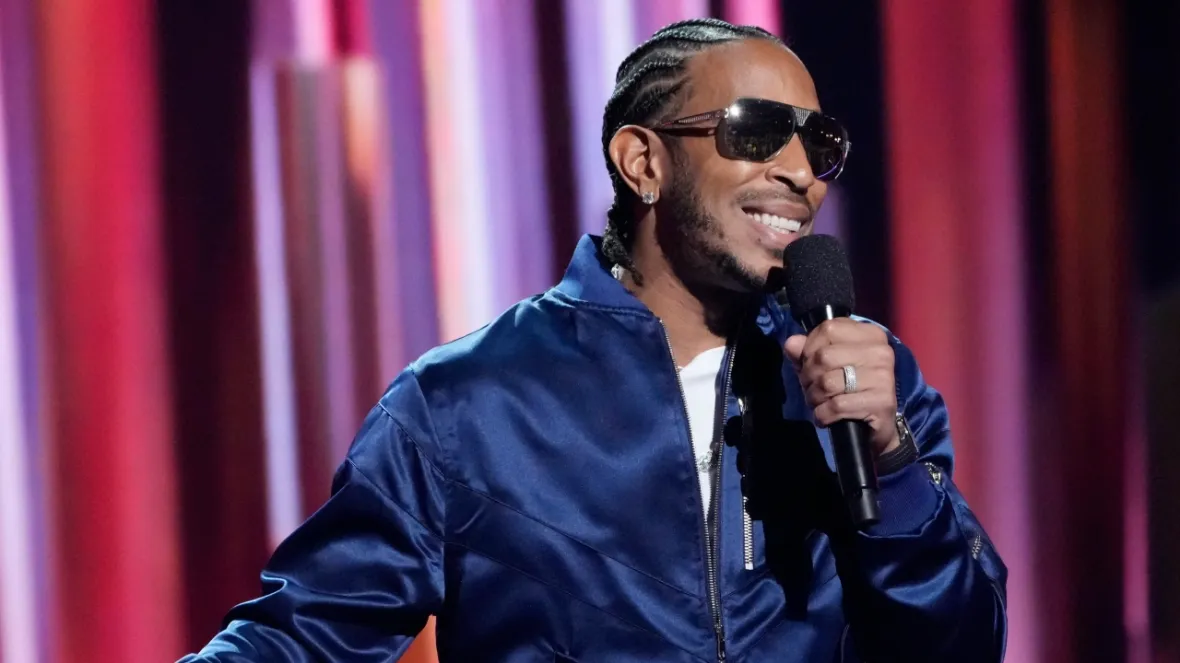Ludacris’ sip of untreated Alaska glacier melt was totally fine, scientist says
Ludacris speaks from the stage while hosting the iHeartRadio Music Awards on April 1 at the Dolby Theatre in Los Angeles. (Photo: Chris Pizzello/AP, file)
“If you drink water from a melt stream on a glacier, that’s about the cleanest water you’ll ever get,” says glaciologist Martin Truffer.
ANCHORAGE, Alaska (AP) — Rapper-turned-actor Chris “Ludacris” Bridges sparked concern from some social media followers when he knelt on an Alaska glacier, dipped an empty water bottle into a blue, pristine pool of water and drank it.
Video of Ludacris tasting the glacial water and proclaiming, “Oh my God!” got millions of views on TikTok and Instagram. Some viewers expressed concern that he was endangering his life by drinking the untreated water, warning it might be contaminated with the parasite giardia.
But an expert on glaciers from the University of Alaska in Fairbanks said the online brouhaha “was ludicrous.”
“He’s totally fine,” glaciologist Martin Truffer said Wednesday.
“It’s sort of understandable that somebody would be concerned about just drinking untreated water, but if you drink water from a melt stream on a glacier, that’s about the cleanest water you’ll ever get.”
Ludacris donned ice cleats to knock off a bucket list item and walk Knik Glacier, about 40 miles (64 kilometers) north of Anchorage, while he was in the nation’s largest state to perform Friday at the Alaska State Fair. He was clearly pleased by the taste of the glacial water.
“I’m a water snob,” he said in a later video before a concert Tuesday in Minneapolis. “It was the best tasting water I’ve ever had in my life.”
Recommended Stories
Symptoms of giardiasis, the illness caused by giardia, include diarrhea, stomach cramps and dehydration. It can spread from one person to another or through contaminated water, food, surfaces or objects. The Centers for Disease Control and Prevention suggests people avoid swallowing water while swimming and boiling or filtering water from lakes, springs or rivers before drinking it to prevent getting sick.
The Alaska Department of Environmental Conservation does not recommend drinking untreated surface water, spokesperson Kelly Rawalt said in an email. It also has produced a flyer with safe drinking practices for outdoor enthusiasts, including adding chlorine or iodine to quart-size water containers and letting them sit an hour before drinking.
Truffer, who acknowledged he knew of Ludacris only because his neighbor in Fairbanks named his cat after the rapper, said it’s not always safe to drink water from a stream in the wild. But he said the water Ludacris drank hadn’t had any exposure to biological activity.
“There’s just really no concern on these glacial streams about safety,” he said.
“I’ve done this many, many times myself without ever having any issue,” he said.
Alaska is home to about 100,000 glaciers, with the icy masses covering about 28,800 square miles (74,590 square kilometers) — or 3% of the state. According to the Alaska Department of Natural Resources, that’s 128 times the area covered by glaciers in the other 49 states.
For some visitors to Alaska, seeing a glacier is a once-in-a-lifetime opportunity. But climate change is taking its toll, and the melting of Juneau’s icefield is accelerating, according to a study that came out last month. The snow-covered area is now shrinking 4.6 times faster than it was in the 1980s.

